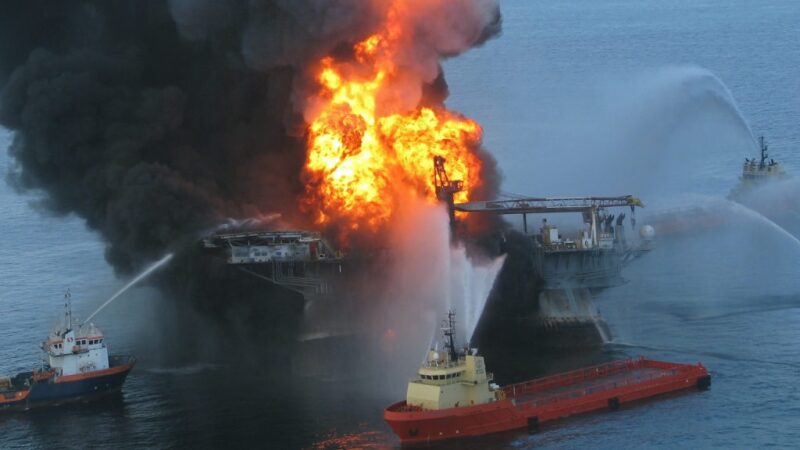Even as the Trump administration has taken steps to expand offshore oil drilling, a new report shows that thousands of oil spills are still happening and that workers in the oil and gas industry are still dying on the job.
The report comes from Oceana, a nonpartisan nonprofit organization dedicated to protecting and restoring the oceans, which has sued the federal government to stop seismic airgun blasting in the Atlantic Ocean. The blasting is the first step needed to allow offshore drilling, when seismic airguns are used to find oil and gas deep under the ocean.
Every state along the Atlantic coast has opposed the blasting, worried that spills could hurt tourism and local fisheries. Some scientists say the testing could also hurt marine life, including the highly endangered North Atlantic right whale.
The group tied its report, released on 18 April, to the ninth anniversary of the BP Deepwater Horizon oil spill to show what has been happening since the government promised to hold the industry accountable to higher safety standards.
That 2010 spill was one of the worst in US history, killing 11 people and dumping more than 210 million gallons of oil into the ocean, polluting more than 1,300 miles of shoreline, killing wildlife and hurting human health. In the lawsuit that followed, a federal judge said the companies involved in the spill were "grossly negligent"in the runup to the disaster.
Using public records and interviews with people in the field, Oceana found that, although there hasn't been another big blowout like the Deepwater Horizon accident, oil spills continue and so do fatalities, though they are not often front-page news.
There were at least 6,500 oil spills in US waters between 2007 and 2017, according to the report, which said that's probably an undercount. Despite a decrease in fatality rates overall as an industry, according to the US Centers for Disease Control and Prevention, the fatality rate of oil and gas industry workers, onshore and off-, was an average of seven times higher than that of other US workers in general between 2003 and 2013.
At the time of the Deepwater Horizon disaster, the US oil and gas industry had reported one of the highest fatality rates as compared to other oil-producing countries.
"Almost 10 years after the BP Deepwater oil spill, offshore drilling is just as dirty and dangerous, despite pledges otherwise," said Diane Hoskins, Oceana's campaign director. "There is still this unacceptable risk of devastating oil spills, and yet there is this call from the Trump administration to expand drilling to new areas and a call to abandon or weaken safety regulations. We should not be expanding drilling."

